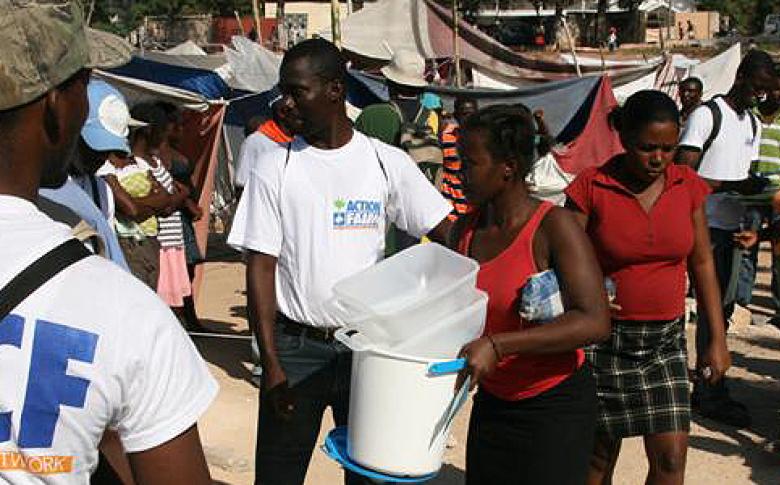Q&A with Jean-Baptiste Lamarche, Director of Logistics & Information Systems with Action contre la Faim

With the aim of eradicating hunger in a more global, lasting and effective, international Non-Governmental Organisation Action contre la Faim (ACF) operates in 50 countries across the world, reaching more than 15 million people.
In May 2016, ACF became the 24th member of the Emergency Telecommunications Cluster (ETC), bringing with it more than 35 years of experience in humanitarian aid and a drive to support the cluster in ensuring all those responding to emergencies have access to vital communications services.
We caught up with Jean-Baptiste Lamarche, Director Logistics and Information Systems about the work of ACF and what it means to become part of the ETC.
What is your position with ACF?
I am the Director of Logistics and Information Systems at ACF. I am in charge of supervising and steering logistics strategies and activities as well as all that’s related to ICT, from a global level down to each field operation.
Why did ACF become a member of the ETC?
ACF has a global positioning towards the Humanitarian Reform and Cluster system. We want to be involved in this coordination mechanism to be able to contribute to the wider humanitarian community and make sure that we are operating in collaboration with other organisations to deliver better help to beneficiaries.
ACF is already actively involved in the Logistics, Nutrition, WASH, Food Security and Protection Clusters. It has been a while that we were missing the emergency telecommunications piece. We have a big team working on emergency telecoms and ICT around the world. As with the other clusters, we think there is great benefit in sharing experience and projects in order to gain efficiency in humanitarian operations.
What will ACF bring to the ETC?
ACF operates in 50 countries across the world, so we also have a global network of ICT staff who are already deployed and trained in emergency response.
We have structures in place so in times of disaster we are able to be part of the wider humanitarian response and can support ETC operations. We can share services, share equipment, share infrastructure. We are actually already doing that in some places. In Yemen for example we are hosting an inter-agency ETC security communications repeater on one of our sites.
What do you see as the value of the ETC network?
I think one of the key outputs of the cluster is the ability to build relationships to get to know our counterparts, working on the same topics, with other organisations. The community approach of the clusters is one of the things we think is very powerful.
The collaboration and alliances built through the ETC are key to being more efficient in humanitarian operations. We can see it in emergencies, for example. When we go with the same people, with counterparts that we know, we can quickly take decisions because the trust is already there, the ways of working have already been developed, and the communications channels are open. With this, we can be very very efficient. This long-term relationship construction needs to be developed outside of emergency response.
Preparedness is fundamental to emergency response, and we are working with the ETC already on the ETC2020 Preparedness Tactical Working Group. As it is true for the network to build relationships, it is also very important to test and use ICT assets before emergency. I also think a link with the Logistics Cluster and other inter-cluster coordination groups would be really interesting to work on preparedness, see what are the different scenarios are and how we can all work together.
Joint advocacy is something we are hoping to be a part of, and contribute to, with the ETC. Together we have a stronger voice. Internet connection and satellite connectivity can be extremely expensive, for example, but it is essential for information-sharing, and information-sharing is a key asset for life-saving and to make emergency response efficient. Money spent on internet or satellite connection is money not put into humanitarian aid. As part of the cluster, we can meet with the private sector, have open discussion on these areas.
We also see the ETC as an enabler of Innovation. The ETC has close relationships with private sector forums which are also researching, innovating, and developing solutions. The ETC can help channel and filter the best technology solutions to be presented to humanitarian actors, for us to discover new and appropriate innovations.
By Mariko Hall, Global ETC